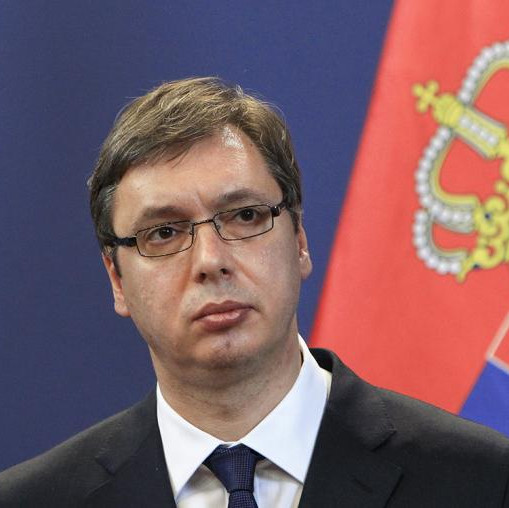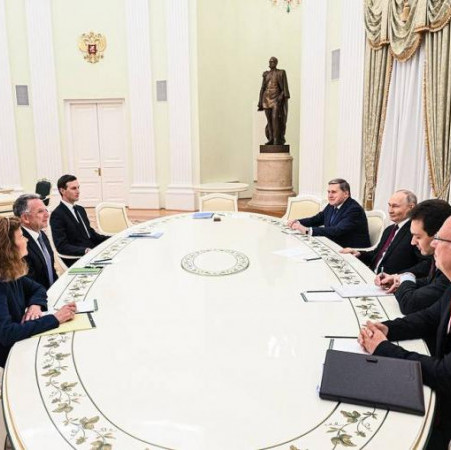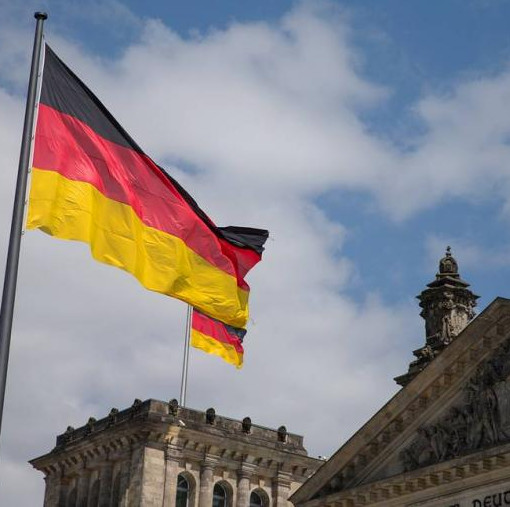The Belarusian incumbent president is re-elected, Denmark boosts its military aid to Ukraine, and the Valdai Discussion Club offers strategies for trade challenges with India. These stories topped the headlines in Monday’s newspapers across Russia, according to TASS News Agency.
Izvestia: Belarus reaffirms support for incumbent president
Alexander Lukashenko has won the Belarusian presidential election, securing 87.6% of the votes according to exit polls. The voter turnout reached 81.5%, reflecting the citizens’ strong engagement with Belarus’s future, viewing the incumbent president as a symbol of peace and stability for many. Despite external attempts to disrupt the election process, Belarusian society resisted provocations.
No significant violations were reported during the election, CIS Secretary General and head of the CIS observer mission Sergey Lebedev told Izvestia. He also highlighted the notably celebratory atmosphere on election day, which, he noted, is a hallmark of all post-Soviet states.
The external pressure and disinformation campaign launched by the West against Belarus and its allies spark indignation, Lebedev remarked.
"The Belarusian people resisted the calls from these agitators - and there’s no other word for them - who attempted and still attempt to create unrest in the country," he said.
This year, it became evident that the nation’s destiny must be determined at polling stations, not on the streets, presidential candidate and Liberal Democratic Party Chairman Oleg Gaidukevich told Izvestia.
"If you want any changes, want to cast your vote so that something depends on you - no streets, only the polling station. So people realize their responsibility and they head to the election to voice their opinion as to how they envision the country’s future. This is gratifying. <…> Trump has suspended the financing of the radical opposition and they are not capable of doing anything without the money. If they are deprived of financing, all the oppositional activity will end in a week," he said.
The strong voter turnout confirms that Belarusian citizens are deeply invested in shaping their country’s future, experts noted, influenced in part by developments in neighboring Ukraine.
"The parallels with the 2015 election are striking, as society was then unsettled by events in Ukraine and Donbass. During that time, the population rallied around Lukashenko as a leader ensuring stability and peace. The same is happening now. Lukashenko represents a guarantor of peace and stability, explaining the turnout and unity," said Yury Shevtsov, Director of the Minsk-based Center for European Integration, speaking to Izvestia.
Gaidukevich stressed that for this reason, no major destabilization should be anticipated in Belarus following the current election.
Izvestia: Denmark to boost military assistance to Ukraine by $1.3 billion
Copenhagen’s military aid to the Kiev regime has totaled approximately $7.5 billion since the start of Russia’s special military operation in Ukraine, the Russian Embassy in Denmark told Izvestia. Moreover, in 2025, the country’s authorities plan to allocate over $1.3 billion to Ukraine. The Russian diplomatic mission believes that during Denmark’s EU chairmanship in the latter half of this year, the kingdom’s priority will also involve increasing weapons manufacturing, including for Ukraine. Meanwhile, the expert community acknowledges that Denmark possesses the resources to sustain at least financial aid to Ukraine. Experts highlight the country’s and other northern European states’ heightened activity in response to the exaggerated "Russian threat."
The EU’s anti-Russian rhetoric and policy direction during Denmark’s chairmanship will likely intensify. However, Brussels’ specific actions will depend on developments in the conflict zone, the dynamics of negotiations between Russia and the US, and Trump’s stance toward his European allies, Nikita Lipunov, an analyst at the Institute for International Studies at Moscow State Institute of International Relations (MGIMO University), told Izvestia.
"Trump has already stated that the US should not subsidize European militaries and that NATO nations must raise their defense spending to 5% of GDP instead of 2%. That said, European countries have long discussed achieving their own strategic autonomy, but progress remains minimal. Regardless, during Trump’s administration, European security will still rely heavily on the US, and Europe is unlikely to make significant strides toward this autonomy. Even if the US reduces its military support for Ukraine, Denmark will likely maintain its aid to Ukraine, at least in humanitarian efforts," the expert explained.
Lipunov emphasized that "Denmark is among the most anti-Russian-oriented countries in Europe and globally. It is essential for Denmark to showcase its status as a loyal and proactive US ally. Denmark is a wealthy nation and possesses the resources to provide at least economic support to Ukraine," he stated.
According to the expert, it is also crucial to recognize the solidarity of smaller states, a trait seen in Baltic and northern European countries. "They are acutely aware of events in Ukraine, often projecting the conflict onto their own circumstances," Lipunov concluded.
Vedomosti: Valdai Discussion Club offers strategy to resolve trade challenges with India
To sustain the growth rate of Russia’s trade with India and address its trade imbalance, a shift from a short-term to a strategic, long-term approach is necessary, according to a report by the Valdai Discussion Club prepared for a conference with the Vivekananda International Foundation.
Under the constraints of sanctions, the report suggests accelerating the development of financial frameworks and resolving challenges related to payment systems for private individuals. Olga Belenkaya, chief macroeconomic analyst at Finam, told Vedomosti that this is "a crucial prerequisite for fostering economic relations under sanctions."
The report emphasizes the significance of logistics and encouraging Indian investments in the North-South International Transport Corridor, the Chennai-Vladivostok Eastern Maritime Corridor, and the Northern Sea Route to enhance bilateral trade. Gleb Makarevich, from the Center of the Indo-Pacific Region at the Russian Academy of Sciences’ Institute of World Economy, highlighted two perspectives regarding the development of these corridors: they will either become operational "when sufficient cargo is available to transport" or once they are fully technologically equipped.
Additionally, creating favorable conditions for both countries’ diasporas and optimizing labor migration systems were identified as important measures to bolster trade ties.
Vedomosti: Oil tanker freight rates surge in Russian ports
The freight rates of Aframax oil tankers (with a deadweight of 80,000-120,000 tons) in Russian ports sharply increased in January 2025 - by 39-239%, depending on a port and the delivery destination, according to a report by the Price Index Center made available to Vedomosti. A significant rise in logistics costs occurred during the week of January 10-17. Prior to that, in December and January, variations in freight rates were minimal.
Analysts polled by the newspaper do not believe that the increase in freight costs will be prolonged. According to Dmitry Kasatkin, a partner with Kasatkin Consulting, the trend will persist only if new sanctions are imposed on vessels or if there are significant cases of secondary sanctions.
Sergey Suverov, investment strategist at Aricapital Management Company, also predicts that the rise in freight rates will halt soon, and they may even decline slightly. "The global tanker market is extensive, and Russian companies will quickly secure alternatives for vessels under sanctions, which would stabilize freight rates," he explained.
Nikolay Dudchenko, an analyst at Finam, observed that the new sanctions are unlikely to meaningfully affect the situation with Russian oil exports, while only a temporary decrease in supplies is possible. Kasatkin agrees, adding that after a "short-term decline" linked to adjusting to new conditions, exports will return to the levels of late 2024.
Suverov emphasized that, despite the rising freight costs, oil exports from Russia will remain profitable due to the low production expenses for Russian oil producers. BRICS countries are the primary buyers of Russian oil, which effectively guarantees stable supplies, he noted.
Kommersant: Hungarian firms may assist in mitigating energy crisis in Transnistria
According to Kommersant, Moldova’s energy company Moldovagaz is developing a schedule for gas supplies to Transnistria with the participation of Hungary’s MOL and MVM. Earlier, the Moldovan government criticized the idea of Transnistria obtaining gas via Natural Gaz D.C., demanding the establishment of transparent supplies through Moldovagaz. However, the Hungarian companies lack available gas reserves, so they may have to acquire it on the market at elevated prices, analysts suggest.
Experts informed the newspaper that an agreement could be finalized soon, enabling shipments to commence in early February. According to them, this plan currently covers supplies until late March or early April. The route and cost of deliveries remain uncertain, with Transnistria requiring approximately 3 million cubic meters of gas daily.
Vitaly Yermakov of the Higher School of Economics asserts that neither MOL nor any other entity has extra gas volumes, and it must be sourced from the market at premium costs. He estimates that the throughput capacity of the Iasi-Chisinau gas pipeline is inadequate to entirely replace Russian gas.
However, it is feasible to pay higher prices and secure minimal, controlled supplies to Transnistria this winter to avert a humanitarian crisis. "From an economic perspective, this is inefficient, but there is a political rationale: to delay financial collapse at any cost," he remarked.
TASS is not responsible for the material quoted in these press reviews



